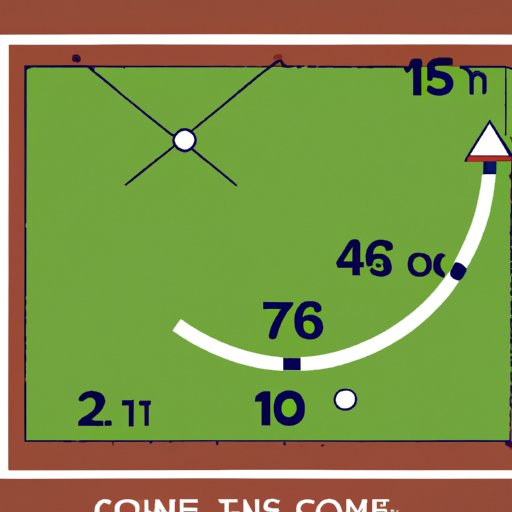Introduction
Golf is a beloved pastime for many people around the world. Whether you’re a beginner or a professional, it can provide hours of entertainment and challenge. But one of the biggest questions that players ask is: how long is a game of golf?
This article will explore this question in detail, providing an overview of the average length of a round of golf. We’ll discuss the factors that contribute to game length, from the number of holes to course design, and strategies for shortening your rounds. Finally, we’ll look at the pros and cons of longer games of golf.
An Overview of the Length of a Typical Golf Match
The length of a game of golf varies depending on the course, the number of players, and the skill level of the participants. Generally speaking, a typical 18-hole round of golf will take between four and five hours to complete.
On average, a player will need to play approximately 72 shots during a round. This includes tee shots, approach shots, chips, and putts. While some courses may require more shots than others, this is a good starting point for estimating how long a game of golf might take.

Breaking Down the Average Number of Holes and Time to Play a Game of Golf
When considering the length of a game of golf, there are two main factors to consider: the number of holes and the amount of time needed to complete a round. The average number of holes per game is 18, but this can vary depending on the course and the players’ preferences. Most courses are designed with 18 holes, but some courses may have fewer or more depending on the layout.
The amount of time needed to complete a round depends largely on the skill level of the players. A group of experienced players can often complete a round in four hours or less. Beginners may take up to five hours to complete a round, depending on the difficulty of the course and the number of players.

How Course Design Impacts the Length of a Round of Golf
Course design plays a major role in determining the length of a round of golf. The terrain, hazards, and other features of a course can add difficulty and extend the length of a round. For example, a course with narrow fairways, deep bunkers, and thick rough can take longer to play than a course without these features.
In addition, courses that feature water hazards, long par-3s, and long par-5s may also take longer to complete. These types of courses require more shots to navigate, resulting in increased overall game length.

Strategies for Shortening Your Golf Rounds
If you’re looking to reduce the length of your golf rounds, there are several strategies that can help. First, pacing yourself is key. Taking your time to properly assess each shot and set up correctly can save time in the long run. In addition, utilizing shortcuts when possible can help you get to the green faster.
Limiting practice swings and playing with a single club can also help speed up your game. Playing with a single club eliminates the need to switch clubs after every shot, saving time and allowing you to focus on executing each swing correctly.
The Pros and Cons of Longer Golf Matches
Longer golf matches can offer several benefits. For starters, they offer more of a challenge. Longer rounds require greater physical and mental endurance, forcing players to remain focused and think strategically. They also allow players to spend more time outdoors, enjoying the scenery and fresh air.
However, longer rounds can also be a bit of a double-edged sword. They can be tiring, especially if the weather is hot or humid. They also tend to be more expensive, as they require more time and energy. Finally, they can be frustrating if a player has to wait for a long period of time before taking their next shot.
Conclusion
In conclusion, the length of a game of golf depends on a variety of factors, from the number of holes to the difficulty of the course. On average, a typical 18-hole round will take between four and five hours to complete. Course design can also affect the length of a round, as courses with more hazards, long par-3s, and long par-5s may take longer to play. There are also strategies that can be used to shorten rounds, such as pacing yourself, utilizing shortcuts, and limiting practice swings.
Longer rounds of golf can offer a greater challenge and more time spent outdoors, but they can also be tiring and expensive. Ultimately, it’s important to find a balance between challenge and enjoyment when it comes to the length of your golf matches.


